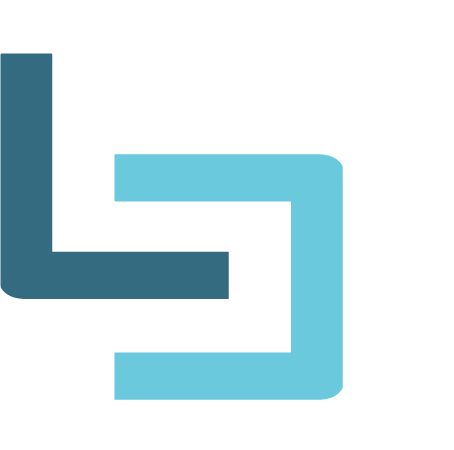
Many Canadians subscribe to the notion that all debt is bad debt and that taking out a personal loan is almost never a good idea. But that is simply not true. In fact, a personal loan can be advantageous in many situations. If you need to take out debt for any reason (need being the keyword here), don’t discount personal loans in Canada.
What Is a Personal Loan?
A personal loan is a lump sum of money you receive at one time; unlike credit card debt that is a form of revolving debt. With a credit card you have access to an allotted amount of funds as you need them. With a personal loan, even as you pay it down, or off, the funds available to you don’t get restored. Lenders typically allow borrowers two to five years to pay off a personal loan, though some may extend the term to seven. Most personal loans come with fixed interest rates and are to be repaid through monthly payments/installments.
There are two types of personal loans you can take out. Both of which come with their unique advantages and disadvantages:
Secured Personal Loan
A secured loan is backed by some form of collateral, such as your car, home or savings account. If you default on your payments, the bank can legally assume ownership of the collateral you placed against your loan. You assume the majority of the risk, but you will be able to secure a better interest rate on the loan.
Unsecured Personal Loan
An unsecured loan is not backed by any form of collateral and therefore the lender is assuming more risk by lending to you. These loans are instead evaluated based on your credit history and financial qualifications, including your credit score. Because of the greater risk to the lender, these loans often come with higher interest rates. Most personal loans in Canada fall into this category.
Exploring the Benefits and Drawbacks of Personal Loans in Canada
Taking out a personal loan in Canada can offer both advantages and disadvantages, depending on individual financial circumstances and needs. One of the primary advantages of personal loans is their versatility, as they can be used for various purposes, such as debt consolidation, home renovations, or covering unexpected expenses. Unlike specific-purpose loans, like auto loans or mortgages, personal loans provide borrowers with the flexibility to allocate funds as needed, making them an attractive option for individuals seeking financial flexibility.
Advantages of Personal Loans
One significant advantage of personal loans is their accessibility and convenience. Many financial institutions and online lenders offer personal loans with straightforward application processes and quick approval times, allowing borrowers to access funds promptly. Additionally, personal loans often have fixed interest rates and predictable repayment terms, making budgeting and financial planning more manageable for borrowers. Moreover, for individuals with good credit scores, personal loans typically offer lower interest rates compared to credit cards, making them a cost-effective solution for financing large purchases or consolidating high-interest debt.
1. Flexibility of Use: Many types of loans have a specific purpose, e.g., auto loans are for vehicles, mortgage loans are for homes, student loans are for school costs, etc. However, with a personal loan you can use the funds as you see fit. Whether you want to use it to consolidate debt, remodel your kitchen or start a business, you can.
2. Reasonable Rates and Terms: Though unsecured personal loans have higher interest rates than secured, the rates are more reasonable when compared with other types of debt. For instance, payday loans can be a quick solution to needing cash, but often come with astronomical interest rates that can reach more than 200%. Payday loans also usually come with a smaller repayment window, while personal loans may give up to seven years to repay.
3. Quick Cash: If you find yourself in a bind, you can receive a loan in as little as 24 hours. Most credit cards take at least a week, maybe two, to arrive in the mail.
4. Credit Score Boost: When used responsibly, a personal loan can help you boost your credit. The simple act of taking out the loan can add to your credit mix (10% of your score) and decrease your credit utilization rate (30% of your score), two factors that can boost your score. If you use the loan to consolidate debt, you can increase your score even more.
Disadvantages of a Personal Loans Canada
However, despite their advantages, personal loans also come with certain drawbacks that borrowers should consider. One notable disadvantage is the potential impact on credit scores. Taking out a personal loan adds to an individual’s overall debt burden, which could affect credit utilization ratios and credit scores if not managed responsibly. Additionally, personal loans may have higher interest rates for individuals with less-than-stellar credit histories, increasing the overall cost of borrowing. Furthermore, missing payments or defaulting on a personal loan can have severe consequences, including damage to credit scores and potential legal actions by lenders. Thus, borrowers must carefully assess their financial situation and repayment capacity before committing to a personal loan in Canada.
1. Potential for Abuse: Personal loans are one of the most abused forms of credit because of their flexibility of use. Compounding that issue, they’re fairly easy to acquire. It is not uncommon for borrowers to pull out personal loan after personal loan to pay for big-ticket items, vacations, everyday bills or other items they cannot afford.
2. Affordability: Applicants looking for a personal loan are usually applying because they’re already in need. Therefore, the proper time isn’t always put in to understand the true cost of the loan. It’s important to evaluate the monthly payments and any applicable fees before agreeing to a loan. If you take on more than you can afford, this could cause significant damage to your credit score and financial health. Applying with LoanConnect shows you the average monthly cost of each loan offered to you, so you can make an informed decision.
3. Fixed Payments: With credit card debt, you can make the minimum payment each month and be fine. With personal loans, however, you have to pay the agreed-upon amount, otherwise you risk defaulting. If the loan is secured, that means the lender can seize your collateral.
4. Prepayment Penalties: If you pay off a credit card balance in full, you’re rewarded with a boost in your score. If you pay off a personal loan in full before the repayment term is up, the lender may assess a prepayment penalty.
Personal loans come with many appealing benefits, but they are not risk-free. Do your due diligence before applying for a loan. To streamline the process, use our personal loan search engine to see multiple loan offers without affecting your credit score.



